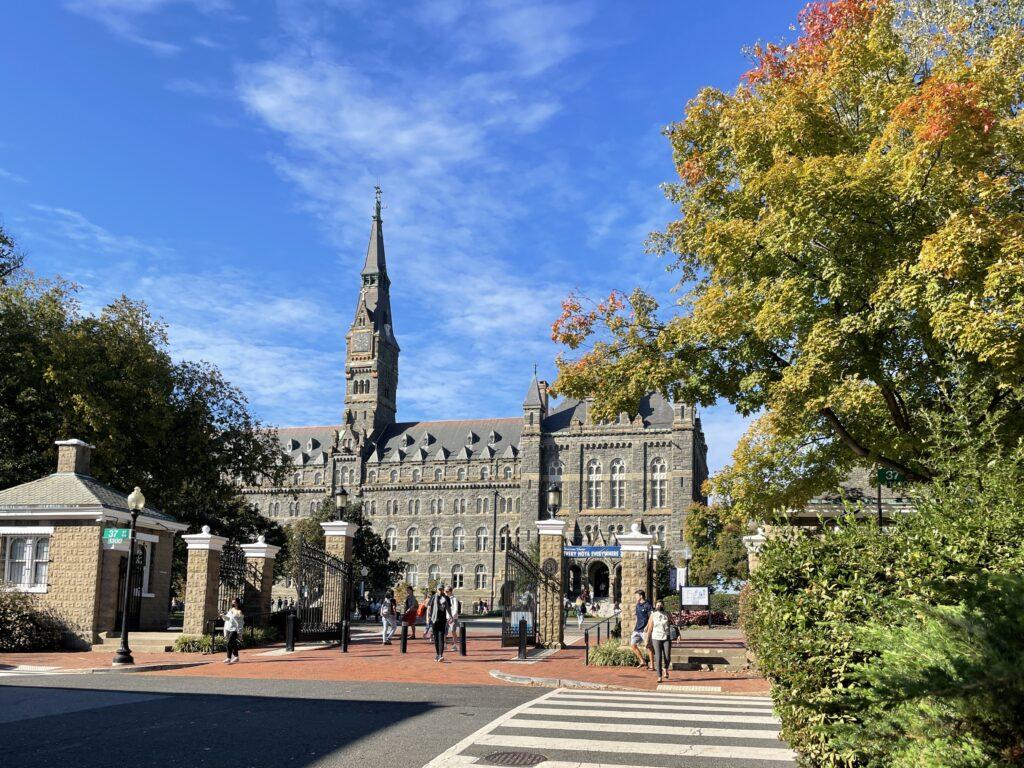The African Studies Program (AfSP) in the Georgetown School of Foreign Service (SFS) hopes to expand its mission of international anti-racism through increased course offerings.
The AfSp was founded by Dr. James Moone, a pastor and longtime member of the NAACP who marched alongside Dr. Martin Luther King Jr. in the 1960s. The program, founded in 1980, was established for students to study the political, social and economic life across Africa and to foster an understanding and engagement of African history and contemporary life.

Today the program continues to value a focus on global equity, according to AfSP Director Lahra Smith.
“For 42 years, our focus has been on educating our students in empirically-grounded and ethically-informed African Studies, and also in promoting and encouraging study in Africa,” Smith wrote to The Hoya. “Certainly, there are shifts that we take and responses we make to demands across the Continent and within the US and our University.”
Georgetown students receive holistic education in the regions they study which is reflected in the AfSP’s interdisciplinary curriculum that touches on a wide range of topics, AfSP Professor Ken Opalo said.
“Our mission is to train the whole person,” Opalo wrote to The Hoya. “That means that we will change when needed to meet emerging challenges and opportunities and to cater to our students’ changing interests, whether that is studying and teaching economic transformation in the region, US-China competition across Africa, or climate change.”
The AfSP recently received a grant from the Henry Luce Foundation to launch the Africa-China Initiative in partnership with the Asian Studies program. The grant allowed the two programs to collaborate in research, as well as hold discussions on diplomacy, trade and development between the two regions.
Africa-China Initiative Director Dr. Yoon Jung Park said this collaboration presents the opportunity to explore African relations in the world at new depths.
“Given the ongoing circulation of misinformation, like ‘debt trap diplomacy’, and heavily politicized narratives that demonize China and dismiss African agency, we feel it is imperative to educate our audiences with the complicated and nuanced realities of Africa-China engagements,” Park wrote in a statement from the SFS.
The program looks to expand in the coming years through adding new professors to the program, offering new language classes and promoting a wider variety of study abroad locations, according to Smith.
“We do have three years of Swahili taught now, so students can take it for their proficiency, but by expanding our offerings even more, both in Swahili and maybe eventually offering a second African language, that would enhance students knowledge of African studies, a Continent where there are 55 countries and close to 2000 languages spoken,” Smith wote.
The French department is also recruiting professors who specialize in Francophone African Studies, according to Smith.
Expanding study abroad programs beyond Tanzania, Kenya, Ghana, South Africa, Cameroon and Morocco would present students with unique research opportunities, Opalo said.
“Africa is a continent of 55 diverse countries that present a lot of interesting learning opportunities for Georgetown University students,” Opalo wrote. “Ghana, Senegal, Zambia, Namibia, and Botswana are all interesting countries where we should be sending more Georgetown University students to study and or conduct research.”
Despite aid from adjunct professors, more full-time core faculty members are needed to support student interest in writing theses and conducting research, Smith said. Hiring more faculty members is crucial to the expansion of the program.
“We have other regular adjunct offerings from colleagues who work in the security sectors,” Smith wrote. “But some of these subjects, especially core history and environment courses, will require us to have full-time faculty to be effective at teaching and advising students long-term.”














